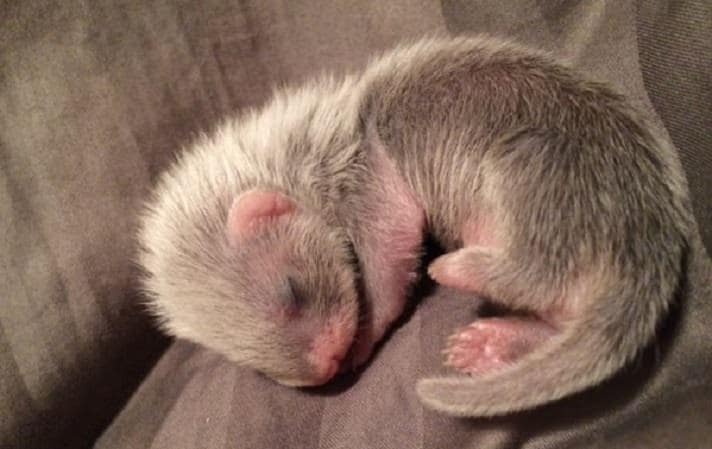
Baby Ferret Care: A Comprehensive Guide for New Owners
Introduction
Ferrets, known for their playful and affectionate nature, make charming companions. However, baby ferrets require specialized care to ensure their well-being and development. This comprehensive guide will provide new owners with essential information on baby ferret care, covering everything from nutrition to socialization.
Nutrition
Feeding Schedule:
- Newborn ferrets (kits) should be fed every 2-3 hours around the clock.
- As they grow, gradually increase the interval between feedings.
- By 8 weeks of age, ferrets should be eating 3-4 times a day.
Formula:
- If the mother ferret is unavailable, use a high-quality ferret-specific formula.
- Warm the formula to body temperature (100-102°F) before feeding.
- Use a syringe or bottle with a small nipple.
Weaning:
- Begin introducing solid food around 4 weeks of age.
- Offer soft, moistened kibble or ferret food.
- Gradually increase the amount of solid food and decrease the formula.
- By 8 weeks of age, ferrets should be fully weaned.
Diet:
- Ferrets are obligate carnivores, meaning they require a diet high in animal protein.
- Feed a high-quality ferret kibble that contains at least 30% protein.
- Supplement with fresh meat, such as chicken or turkey.
- Avoid feeding table scraps or human food.
Housing
Cage:
- Choose a cage that is large enough for the ferret to move around comfortably.
- Provide multiple levels and hiding places.
- Line the cage with soft bedding, such as fleece or towels.
Temperature:
- Ferrets prefer temperatures between 60-75°F.
- Provide a heat source, such as a heating pad or blanket, during cold weather.
Litter Box:
- Train ferrets to use a litter box by placing it in a corner of the cage.
- Use a litter specifically designed for ferrets.
Health Care
Vaccinations:
- Vaccinate ferrets against distemper and rabies at 6-8 weeks of age.
- Booster shots are required annually.
Deworming:
- Deworm ferrets every 3-6 months to prevent intestinal parasites.
Spaying/Neutering:
- Consider spaying or neutering ferrets around 6 months of age to prevent unwanted litters and certain health issues.
Common Health Problems:
- Respiratory infections
- Gastrointestinal issues
- Adrenal disease
- Insulinoma
Socialization
Handling:
- Handle baby ferrets gently and frequently to socialize them.
- Avoid sudden movements or loud noises.
Playtime:
- Provide plenty of playtime with interactive toys, such as balls, tunnels, and stuffed animals.
- Supervise playtime to prevent injuries.
Interaction with Other Pets:
- Introduce ferrets to other pets gradually and under supervision.
- Keep ferrets away from small animals, such as rodents and birds.
Training
Litter Box Training:
- Place ferrets in the litter box after feeding or waking up.
- Reward them with treats for using the litter box.
Harness Training:
- Start harness training around 4 months of age.
- Use a small, ferret-specific harness.
- Gradually increase the duration of harness wear.
Other Training:
- Teach ferrets basic commands, such as "come" and "sit."
- Use positive reinforcement, such as treats or praise.
Conclusion
Baby ferret care requires patience, dedication, and specialized knowledge. By following the guidelines outlined in this comprehensive guide, new owners can provide their furry companions with the best possible care and ensure their health, happiness, and well-being. Remember to consult with a veterinarian regularly for professional advice and to address any specific needs or concerns.
